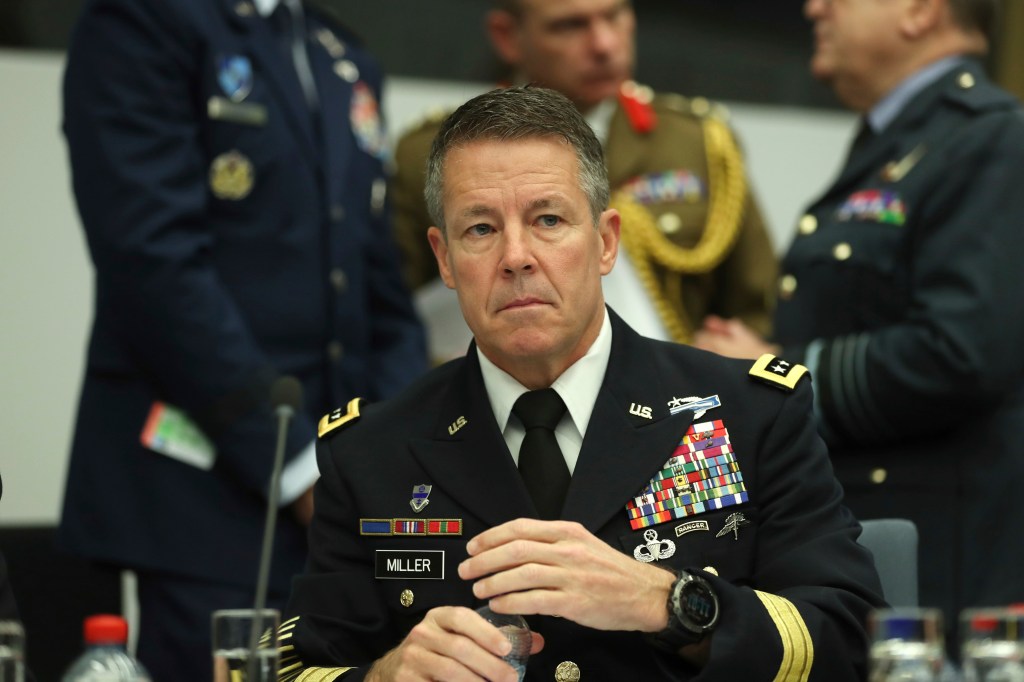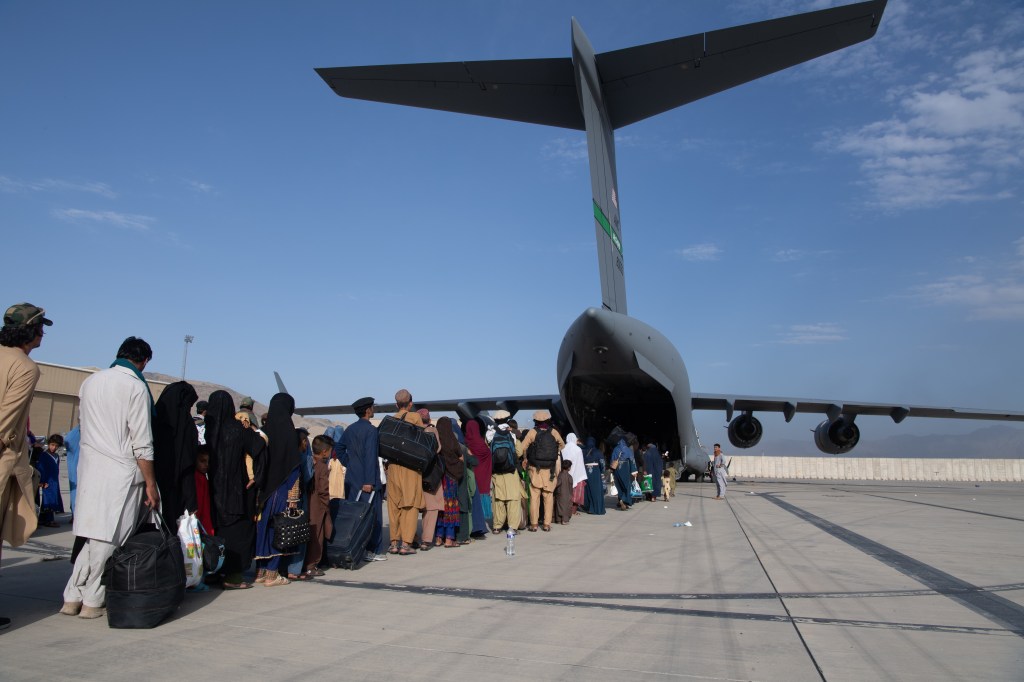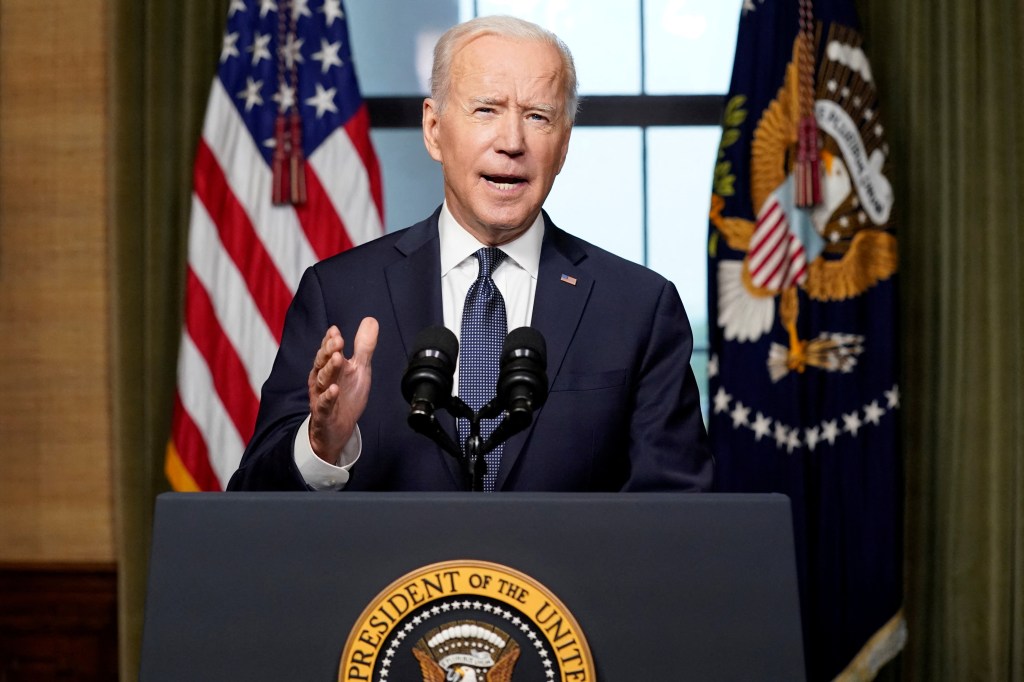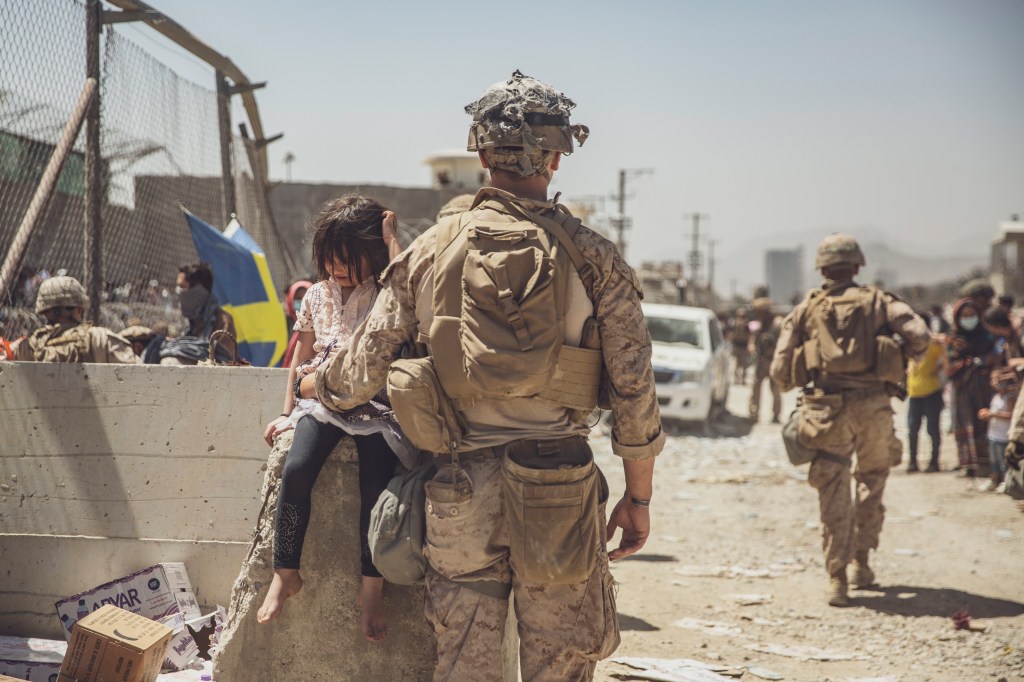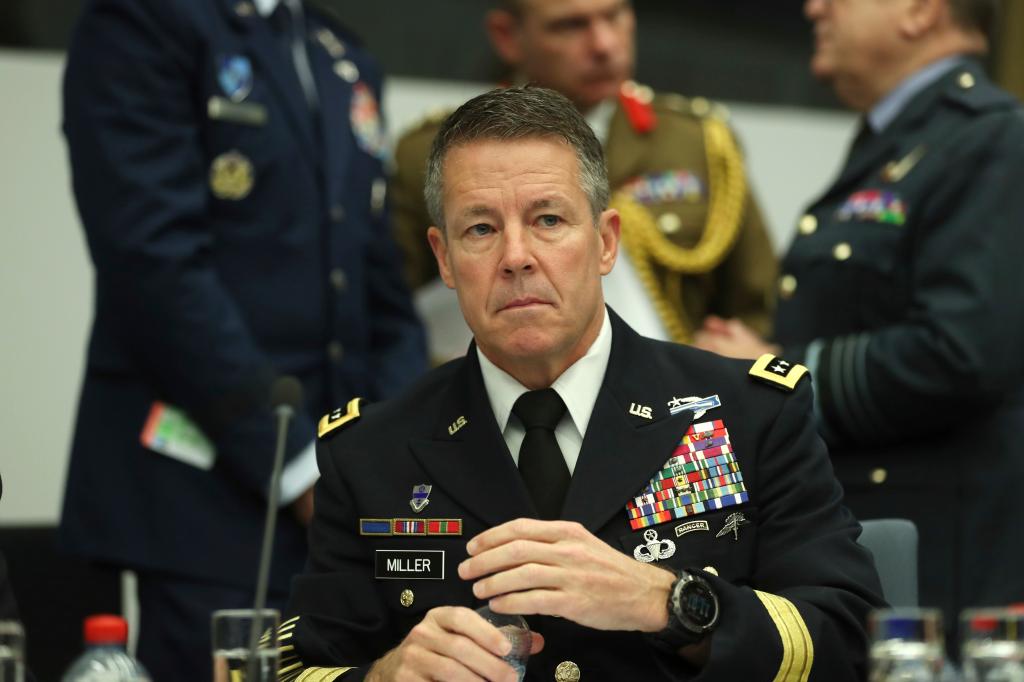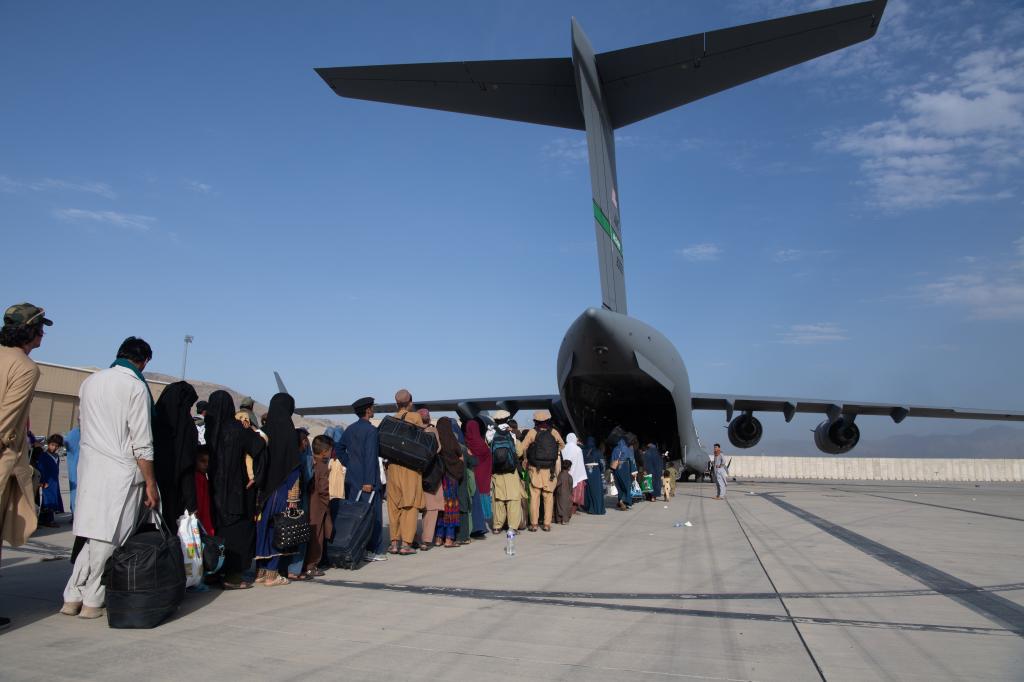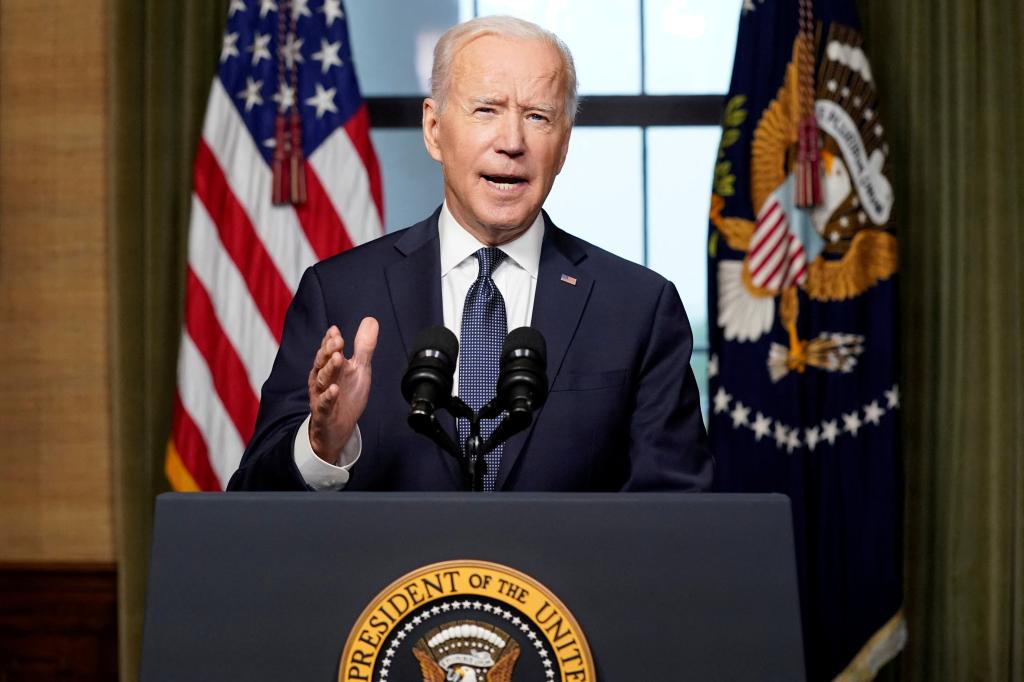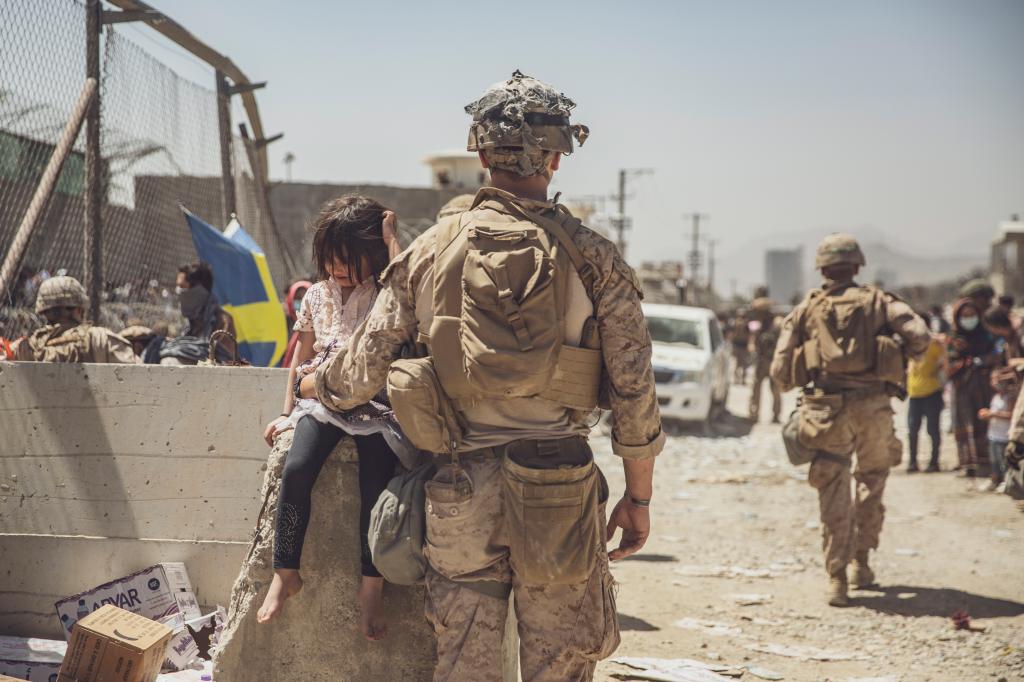Former NATO commander warned White House Afghanistan pullout ‘would go very bad very fast’ before botched operation that left 13 US forces dead
A former NATO commander of US forces in Afghanistan testified to Congress last month that he advised the Biden administration that a full withdrawal of troops from the war-torn nation “would go very bad very fast.”
Retired Army Gen. Austin Scott Miller told members of the House Foreign Affairs Committee in an April 15 transcribed interview that “going to zero” troop presence would have left the Western-backed government in Kabul vulnerable to a Taliban offensive like the one which overran the country in August 2021.
“My recommendation was that we retain a footprint,” Miller said. “I could not rule out a need for a surge down the road to protect forces. But at the same time, I didn’t necessarily think it was the most likely.”
The four-star general added that he had informed both the Trump and Biden administrations that his recommendation was to keep at least 2,500 forces on the ground in bases at both Kabul and Bagram Airfield, the latter of which was abandoned by the US military one month before the full-scale evacuation.
“My view was that, going to zero, things would go very bad very fast,” Miller recalled. “And of course, [I] define that [as] not prepared for a political or a security collapse while we’re still present, just wouldn’t be prepared.”
While former President Donald Trump had initiated the withdrawal through the 2020 Doha Agreement, Miller told House panel members that the Taliban launched “at least a couple indirect fire attacks.”
That aggression was just the beginning of what he believed would be a complete “military takeover” — despite efforts by Secretary of State Antony Blinken and other Biden officials to broker a “power-sharing” deal between the Taliban and the Afghan government.
“I’d say the Afghan Government died of a thousand cuts as opposed to a tipping point-type thing,” Miller testified, adding that President Biden’s decision to announce a full withdrawal of US diplomats and military personnel on April 14, 2021, only quickened that process.
“[A]t that point, my focus was, ‘How do I get these guys out of here without hurting somebody?’” he said. “And I’m going to be very honest with all of you. You want to talk about — I don’t usually get scared. I don’t. I was scared. And you know what I was afraid of? I was afraid I was going to lose somebody.”
Miller said he advocated in May 2021, weeks after Biden’s order, for the evacuation of the US embassy in Kabul, but State Department officials had “a lack of understanding of the risk.”
Other ex-officials who have testified to the House Foreign Affairs Committee also faulted the agency’s choice of diplomats for the botched bugout three months later.
“In my perspective, they did not send their best,” a former foreign service officer said in a Sept. 15, 2023, interview. “In fact, they may have sent their worst.”
Months later, as noncombatant evacuations were taking place in Kabul, ISIS-K suicide bomber Abdul Rahman al-Logari blew himself up outside Hamid Karzai International Airport’s Abbey Gate, killing 13 US service members and almost 200 Afghans.
The terrorist had been freed from his prison at Bagram during the Taliban takeover weeks before.
Miller concluded that State Department officials had requested the evacuation “too late,” which put US troops in a tough spot.
“[I]f the building’s already on fire before you start evacuating it,” he said, “it’s a much more challenging evacuation.”








